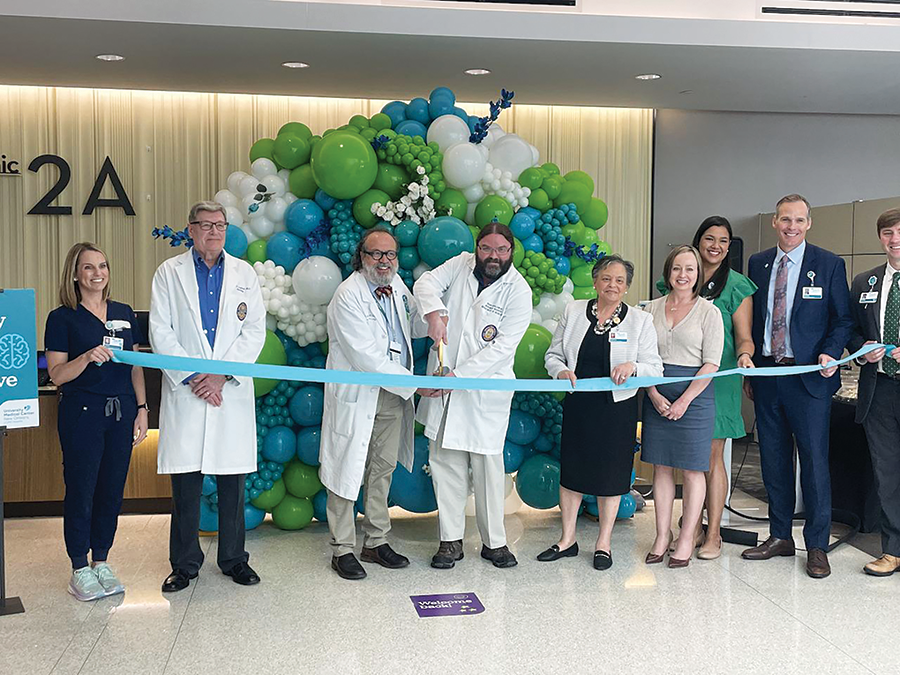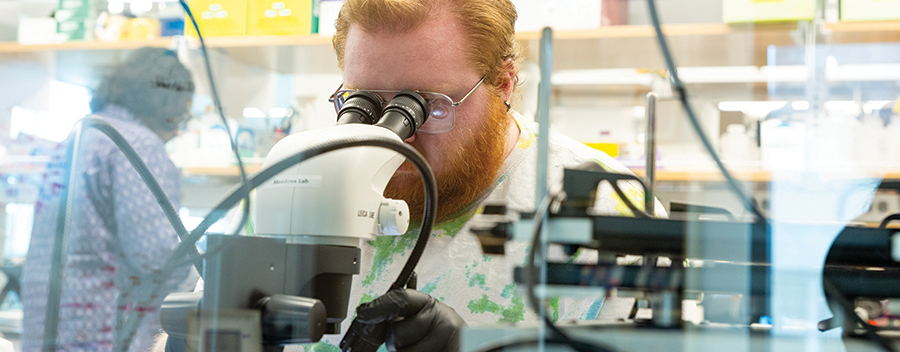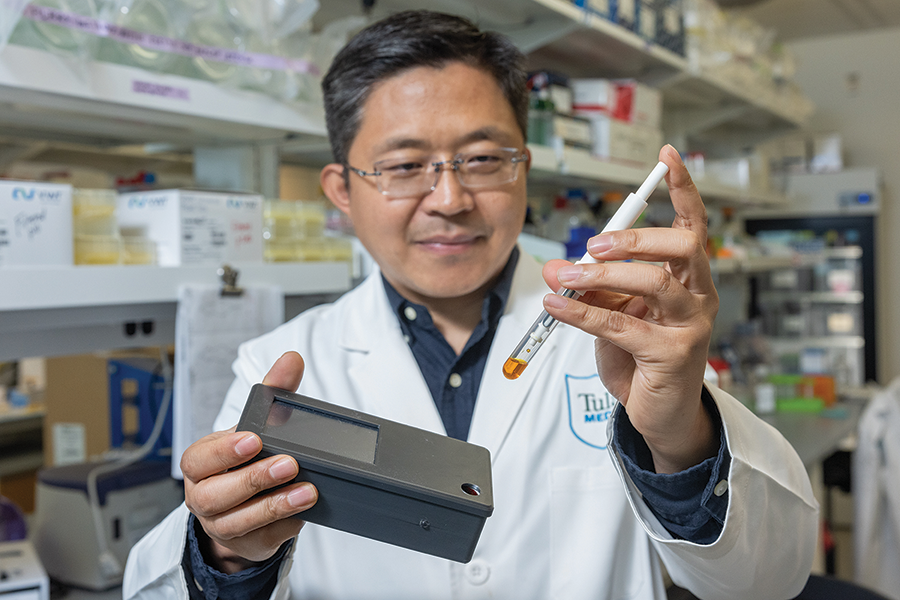
New program tackles aging and cognitive decline
The Tulane Center for Clinical Neurosciences partnered with LCMC Health and LSU Health to launch a new program at University Medical Center. The Healthy Brain Aging Initiative assesses individuals’ risk for Alzheimer’s, dementia and other brain aging disorders by evaluating various lifestyle factors and genetic predispositions. The team of neurologists works with patients to minimize their risks for cognitive decline, creating a personalized plan that may include dietary adjustments, cognitive therapies and lifestyle modifications aimed at enhancing patients’ quality of life and preventing the onset of aging brain disorders.

Tulane scientist co-founds company to create better Lyme disease testing
Associate Professor Monica Embers, director of Vector-Borne Disease Research at the Tulane National Primate Research Center, co-founded Aces Diagnostics to develop a highly accurate clinical test for Lyme disease. The new biomarker blood test uses artificial intelligence and machine learning to detect Lyme disease within the first 14 days of infection with about 90 percent accuracy — significantly improving on current tests, which are often less than 50 percent accurate

Pulmonary fibrosis study
Tulane researchers identified a potential new way to treat idiopathic pulmonary fibrosis (IPF), a deadly and currently incurable lung disease that affects more than 3 million people worldwide. In a study published in the Journal of Clinical Investigation, Tulane scientists, led by Santu Yadav and Dr. Victor Thannickal of the School of Medicine, found that an FDA-approved cancer drug may help the immune system clear out the damaged cells that cause lung scarring, potentially restoring lung function in patients with the disease.
Smartphone-sized TB device could save lives worldwide
In a breakthrough with global health implications, Tulane scientists Tony Hu and Brady Youngquist have developed a handheld device that can diagnose tuberculosis in under an hour — no lab, no specialized infrastructure and no delay. The size of a smartphone, the device is fast, portable and cost-effective, making it a potential lifesaver for children and patients in rural or underserved areas where access to healthcare is limited. The technology could dramatically accelerate TB diagnosis worldwide, especially in regions where the disease remains a leading cause of death. By combining precision diagnostics with real-world usability, Tulane is once again leading the charge in delivering innovations that meet urgent public health needs — and bring cutting-edge science to the front lines.

